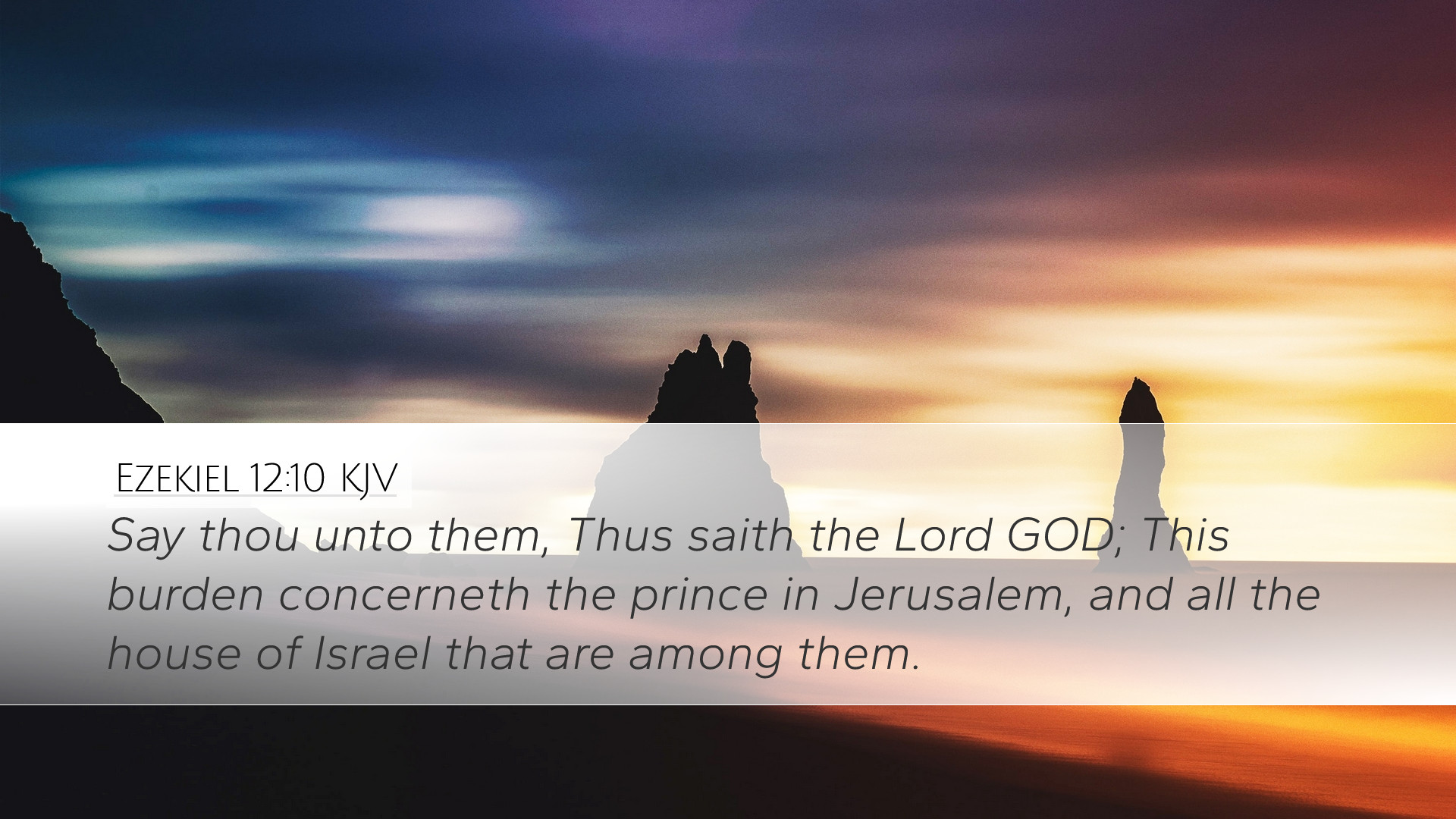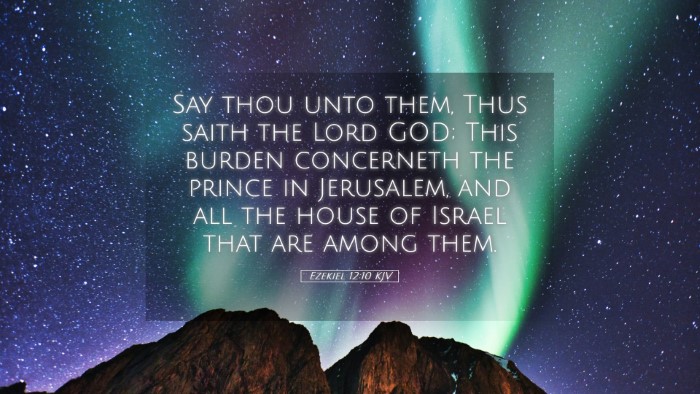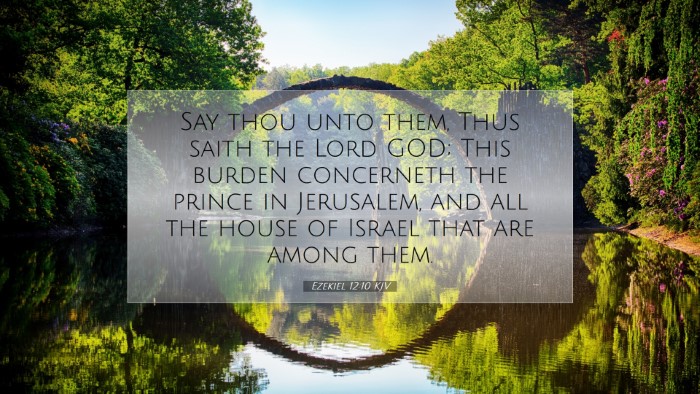Ezekiel 12:10 - Commentary Summary
Verse Reference: Ezekiel 12:10
This verse reads, “Say thou unto them, Thus saith the Lord God; This burden concerneth the prince in Jerusalem, and all the house of Israel that are among them.”
Introduction
The prophetic writings of Ezekiel are rich in imagery and symbolic language, reflecting the spiritual condition of Israel in the years leading up to their exile. Among the themes present is the burden of leadership, which includes both promises and warnings from God. This commentary will distill insights from Matthew Henry, Albert Barnes, and Adam Clarke to deepen our understanding of Ezekiel 12:10.
Contextual Overview
Ezekiel’s prophetic ministry came at a time when Israel was facing significant challenges, including impending destruction and exile. This verse highlights the importance of the communication of God’s word to both leadership and the people.
Historical Context
The prophet Ezekiel speaks during a turbulent time in Israel’s history. The destruction of Jerusalem was imminent, and many in exile remained in denial about their situation. Ezekiel’s message, therefore, served both as a warning and a call to repentance.
Verse Analysis
1. The Burden of the Prince:
According to Matthew Henry, the “prince” mentioned here symbolizes the leaders of Israel, who carry the responsibility for the spiritual and moral direction of the nation. Henry asserts that leaders must bear the weight of their decisions, impacting not only themselves but also the entire community.
2. God’s Authority:
Albert Barnes emphasizes the phrase “Thus saith the Lord God,” which underscores the divine authority behind the message. This declaration serves to remind both the leaders and the people that their situation is not a matter of chance but a consequence of divine judgment and the disobedience that precipitated it.
Thematic Considerations
Leadership and Responsibility:
Throughout the Scriptures, leadership entails accountability. Adam Clarke notes that the prince in Jerusalem represents both a physical and spiritual leadership role. The health of a community often reflects the state of its leaders, prompting a consideration of how pastoral leaders today bear this similar responsibility.
The House of Israel:
The mention of “all the house of Israel” expands the focus beyond the leader, prompting collective introspection. This serves as a reminder that while leaders hold significant power, the entire community bears the responsibility for listening and responding to God’s call.
Application for Today’s Believers
- Awareness of Accountability: Modern leaders within the church must recognize the weight of their influence and the serious implications of their actions.
- Importance of Divine Communication: In every sermon, teaching, or counsel given, leaders must ensure that they are conveying the heart of God accurately, as emphasized in Ezekiel’s mandate.
- Community Engagement: Believers should engage collectively with God’s word, recognizing their shared responsibility in responding to divine guidance.
Conclusion
Ezekiel 12:10 invites both leaders and laypersons to reflect on their roles within the community of faith. Through this verse, we are reminded that God’s messages come with authority and bear the need for a response. The implications for leadership, accountability, and community highlight critical aspects that remain relevant today, ensuring that the Church continues to pursue faithfulness amid challenges.


